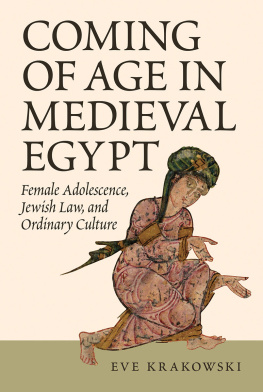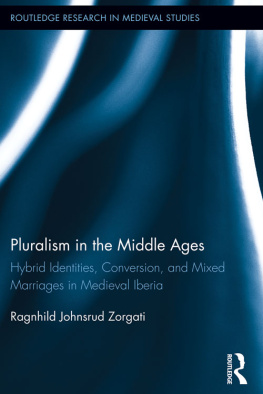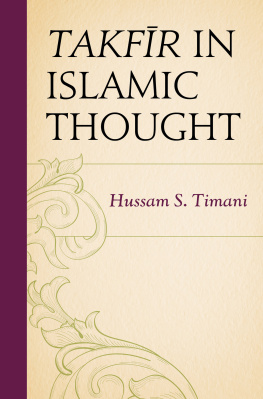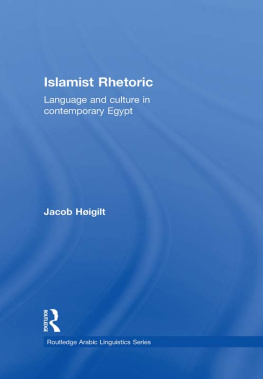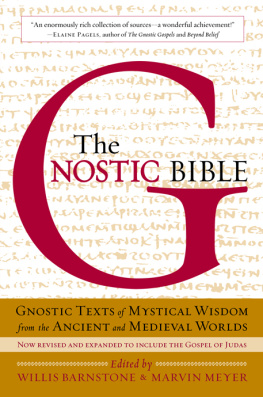
COMING OF AGE IN MEDIEVAL EGYPT
Coming of Age in
Medieval Egypt
FEMALE ADOLESCENCE ,
JEWISH LAW , AND
ORDINARY CULTURE

Eve Krakowski
PRINCETON UNIVERSITY PRESS
PRINCETON & OXFORD
Copyright 2018 by Princeton University Press
Published by Princeton University Press, 41 William Street,
Princeton, New Jersey 08540
In the United Kingdom: Princeton University Press, 6 Oxford Street,
Woodstock, Oxfordshire OX20 1TR
press.princeton.edu
Jacket art: Detail from Ab Zayd and his son, Maqmt al-arr no. 49,
Bibliothque nationale de France MS Arabe 6094, fol. 180r (1222, likely Egypt or Syria).
All Rights Reserved
Library of Congress Cataloging-in-Publication Data
Names: Krakowski, Eve, 1978- author.
Title: Coming of age in medieval Egypt : female adolescence, Jewish law,
and ordinary culture / Eve Krakowski.
Description: Princeton, New Jersey : Princeton University Press, [2017] |
Includes bibliographical references and index.
Identifiers: LCCN 2017020240 | ISBN 9780691174983 (hardcover : alk. paper)
Subjects: LCSH: Jewish womenEgyptSocial conditionsHistoryTo 1500.
| Jewish womenReligious lifeEgyptHistoryTo 1500. | Cairo Genizah.
Classification: LCC DS135.E4 K63 2017 | DDC 305.48/89240620902dc23
LC record available at https://lccn.loc.gov/2017020240
British Library Cataloging-in-Publication Data is available
This book has been composed in Miller
Printed on acid-free paper.
Printed in the United States of America
10 9 8 7 6 5 4 3 2 1
CONTENTS
LIST OF ILLUSTRATIONS
ACKNOWLEDGMENTS
THIS BOOK WAS WRITTEN with support from the Jacob and Hilda Blaustein Postdoctoral Fellowship in Judaic Studies at Yale University and the Stanley A. and Barbara B. Rabin Postdoctoral Fellowship in Judaic Studies at Columbia University. The dissertation from which it emerged was written with support from the Whiting Dissertation Fellowship at the University of Chicago.
I am grateful to the following people who read and commented on parts of the manuscript: Elisheva Baumgarten, Abraham J. Berkovitz, Robert Brody, Mark Cohen, Michael Cook, Arnold Franklin, Jonathan Gribetz, Brendan Goldman, Jennifer Grayson, Moshe Krakowski, Tamer el-Leithy, Ivan Marcus, Yifat Monnickendam, Ishay Rosen-Zvi, Seth Schwartz, Mathieu Tillier, Moulie Vidas, and Lev Weitz. Their questions and suggestions saved me from many embarrassing errors and pushed me to improve the book in countless ways. (The errors that no doubt remain are, of course, my responsibility alone.) Craig Perry and Oded Zinger read early drafts of almost every chapteras did Marina Rustow, who also saved the day with her suggestions for several nearly finished ones. This book would have looked very different without them. Jessica Goldberg read the entire manuscript twice, once for a graduate seminar and once as a reader for Princeton University Press, and offered detailed advice that transformed the final version. I am also grateful to the other anonymous reader for the press for his or her valuable suggestions.
Norman Golb taught me to read the sources on which this book is based and insisted that I read them carefully. I would not have entered this field without his meticulous and patient instruction. I thank him and the other wonderful teachers at the University of Chicago who showed me how to be a scholar, especially Fred Donner and Jim Robinson. Marina Rustow never taught at the University of Chicago, but my thanks to her belong here too: since she agreed to act as reader on my dissertation seven years ago, she has taught me not only how to think about history, but also how to approach a conference interview, how to put together a grant application, the difference between in press and forthcoming, andby examplehow it is possible to be an inexhaustibly enthusiastic, gracious, and generous teacher, mentor, and colleague. I am more grateful to her than I can say.
Parts of this book were written during the two years I spent as a post-doctoral fellow in the Program in Judaic Studies at Yale University. Ivan Marcus was a kind and supportive mentor to me during these two years, and I thank him, along with Steven Fraade, Christine Hayes, Hindy Najman, Eliyahu Stern, and Yishai Kiel, for making my time at Yale truly delightful. I cant imagine a better place to have begun life postdissertation. fell into place during a year-long postdoctoral fellowship at the Institute for Israel and Jewish Studies at Columbia University. I am grateful to Jeremy Dauber, Elisheva Carlebach, and Seth Schwartz for graciously welcoming me to the institute and for many enriching conversations from which I learned a lot. The book came into final form during my first year at Princeton. Thanks to the many wonderful current and former colleagues who have made my start there a very happy one: Leora Batnitzky, Michael Cook, Yaacob Dweck, Jonathan Gribetz, Lara Harb, Bernard Haykel, kr Haniolu, Martha Himmelfarb, George Kiraz, Satyel Larson, Lital Levy, AnneMarie Luijendijk, Naphtali Meshel, Hossein Modarressi, Michael Reynolds, Marina Rustow, Cyrus Schayegh, Sabine Schmidtke, Dan Sheffield, Moulie Vidas, and Qasim Zaman.
I chose to work on Geniza documents in graduate school because they were the most compelling sources I had ever read. It has been an unexpected bonus to discover that Geniza studies is an exceptionally friendly and collaborative field. It has been a pleasure over the last few years to work with and to get to know Phillip Ackerman-Lieberman, Mark Cohen, Arnold Franklin, Miriam Frenkel, Mordechai Akiva Friedman, Jessica Goldberg, Brendan Goldman, Jennifer Grayson, Geoffrey Khan, Tamer el-Leithy, Roxani Margariti, Renee Levine Melammed, Judith Olszowy-Schlanger, Ben Outhwaite, Craig Perry, Moshe Yagur, and Oded Zinger. I am especially grateful to Amir Ashur for sharing his dissertation with me early on; I could not have written my own dissertation or this book without it. For enjoyable and illuminating conversations about other matters late ancient, medieval, and modern, I thank Elisheva Baumgarten, Jonathan Decter, Yehuda Galinsky, Sarit Kattan-Gribetz, Sarah Pearce, Micha Perry, Meira Polliack, Paola Tartakoff, Rebecca Winer, and Rebecca Wollenberg.
I presented parts of this book at workshops and seminars at the Tauber Institute for the Study of European Jewry at Brandeis University, the Institute for Israel and Jewish Studies at Columbia University, the History Department at Johns Hopkins University, the Kevorkian Center for Near Eastern Studies at New York University, the Program in Judaic Studies at Princeton University, the Department of Jewish Studies at Rutgers University, and the Late Antiquity, Medieval, and Renaissance graduate seminar at the University of California, Los Angeles; and at conferences at the Institute for Advanced Studies in Princeton, the Institute for the Study of the Ancient World in New York, the University of Pennsylvania Law School, and the University of California, Los Angeles. Thanks to the organizers and participants for giving me the opportunity to talk about my work, and for their many thought-provoking comments that helped me to improve it.
A conference I helped organize at Yale in 2013 changed how I understand Geniza documents and their study. I am deeply grateful to the Program in Judaic Studies for sponsoring this conference, to Ivan Marcus for suggesting and encouraging it, to Marina Rustow for helping me to plan it, and especially to Roger Bagnall, Robert Brody, Andreas Kaplony, and Adam Kosto for being willing to spend three days advising Geniza scholars about our field and its prospects; their participation and insights proved invaluable. Some of the books central arguments crystallized for me while I was teaching a seminar at Yale on marriage and kinship in medieval Egypt. I owe a lot to the students in that seminar, Yemile Bucay, Sarah Ifft, Jangai Jap, and Laura Speyer, whose astute and penetrating questions led me to consider aspects of my sources I had never thought about.
Next page
